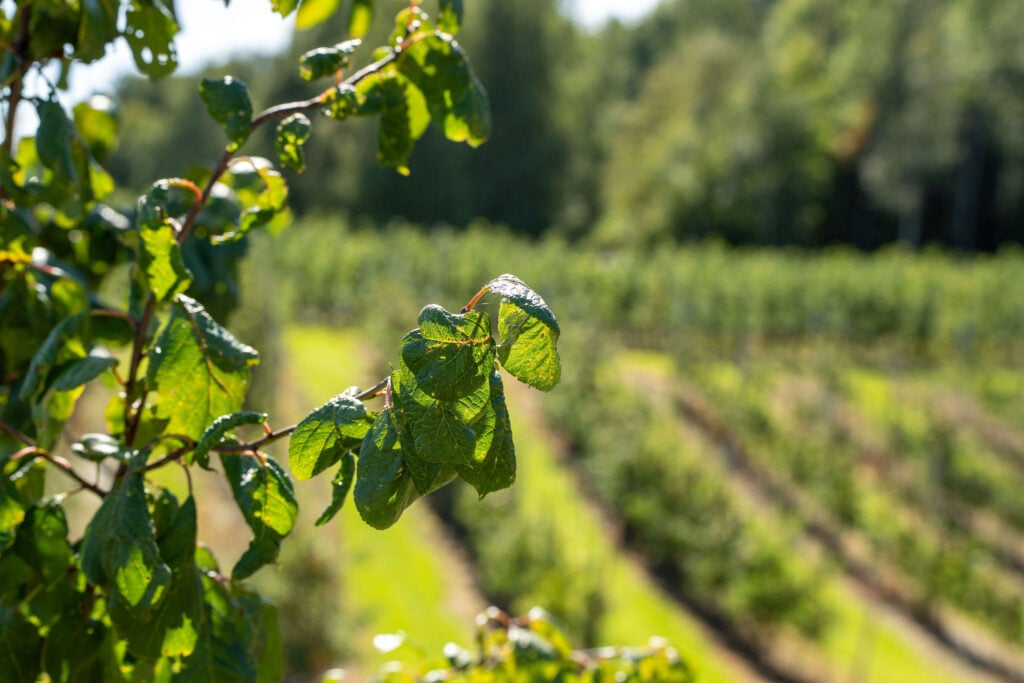How Farmable Supports GlobalG.A.P. Compliance
Don’t know where to start your preparation for GlobalG.A.P. compliance? Here is a quick overview of what digital record-keeping tools like Farmable can do to make compliance requirements a bit less stressful when incorporating them into your daily management practices.
Preparing for a GlobalG.A.P. audit can feel overwhelming. The standard requires farms to maintain strict records, demonstrate traceability, and provide evidence for a wide range of practices.
Farmable was designed to simplify farm recordkeeping and supports many of the requirements most relevant to farm management software (FMS) in the FA v6 GFS Principles & Criteria for Fruit & Vegetables (2024).
Did you know 20% of the full Fruit & Vegetables standard applies to FMS tools? Within that scope, Farmable supports 69% of the criteria. That means Farmable can handle most of your digital recordkeeping needs, while highlighting where additional documentation is required.
Here are some of the key sections where Farmable supports farms in their journey to comply with certifications like GlobalG.A.P digitally:
Table of Contents
Field Records
Section Code: FV-GFS 01.02
Criteria: Producers must maintain accurate, up-to-date records related to production activities. These records must be securely stored to prevent loss or manipulation and retained for at least two years for audit purposes.

Farmable Support: Farmable records all job-related tasks (e.g., spraying, fertilization, harvesting) with automatic timestamps and user assignments. These records are stored securely in the cloud, accessible via mobile and web, and backed up regularly — supporting both audit preparation and long-term data retention.
Resource Management and Training
Section Code: FV-GFS 03.02
Criteria:
Individuals responsible for making technical decisions (such as product application, crop planning, or pest control) must have relevant qualifications or proof of technical competence. This may be demonstrated via formal education, training, or certifications.
Farmable Support:
Producers can upload advisor certificates and related credentials into Farmable, creating a digital record of qualifications tied to the advisor’s role in production decisions.
Specifications, Suppliers, and Stock Management
Section Code: FV-GFS 05.02
Criteria:
The producer must maintain records for all purchased inputs, including stock levels, usage logs, and supplier details. Inputs like fertilizers and pesticides must be traceable to ensure safe use and prevent misuse or overapplication.
Farmable Support:
Farmable Pro includes a Product Inventory feature where producers can manage input inventories, log usage by product and date, and track application details per field and job.
Traceability
Section Code: FV-GFS 06.01
Criteria:
A traceability system must be in place to track produce backward to the field of origin and forward to the first point of sale. This ensures transparency in the event of recalls or quality issues.
Farmable Support:
All information is field(variety) related; this allows for all records to be traced or tagged to the field of origin.
Workers’ Health, Safety, and Welfare
Section Code: FV-GFS 20.03.03
Criteria:
The producer must provide appropriate personal protective equipment (PPE) to workers and demonstrate that workers use PPE during relevant operations (e.g., spraying, fertilizer application).
Farmable Support:
When completing field jobs in Farmable, workers or supervisors can check off PPE usage, creating confirmation that safety procedures were followed.
Site Management
Section Code: FV-GFS 21.03
Criteria:
All sites and infrastructure involved in production — including fields, storage units, greenhouses, and water sources — must be clearly identified and documented for audit traceability.
Farmable Support:
Farmable provides a detailed field map where producers can define, label, and manage their production blocks or plots, offering geolocated visibility over active growing areas.
Greenhouse Gases and Climate Change
Section Code: FV-GFS 24.02
Criteria:
Producers must demonstrate the implementation of sustainable practices that contribute to carbon storage in soils and biomass, such as cover cropping, organic matter additions, and reduced tillage.
Farmable Support:
Practices such as crop rotation or soil treatments can be recorded as job entries in Farmable. These records offer records of carbon-friendly practices.
Waste Management
Section Code: FV-GFS 25.09
Criteria:
The producer must have systems in place to prevent and document food waste. This includes recording causes of waste, quantities affected, and how surplus or rejected produce is managed.
Farmable Support:
Surplus produce and losses can be reflected in harvest logs and sales records, contributing to the traceability of outputs and waste events.
Soil and Substrate Management
Section Codes and Criteria:
- FV-GFS 28.01.03: Crop rotation plans must be documented to demonstrate soil health strategies.
- FV-GFS 28.01.05: Erosion control measures (like mulching, cover cropping) must be implemented and recorded.
- FV-GFS 28.02.01: Any soil fumigation must be justified with clear reasoning and details.
Farmable Support:
Crop rotations can be tracked using Farmable’s replant and field history. Custom jobs allow producers to log erosion control activities. Fumigation can be recorded with attached justifications and product details.

Fertilizers and Biostimulants
Section Codes and Criteria:
- FV-GFS 29.01.01–29.01.06: All fertilizer applications must be logged with details like product, date, dose, applicator, and location.
- FV-GFS 29.01.07: Total nutrient applications (N, P, K) must be tracked and available for review.
- FV-GFS 29.04.01: The nutrient composition of all fertilizers must be documented.
Farmable Support:
Farmable allows producers to record each fertilizer application. Application volumes enable tracking of nutrient quantities, and nutrient composition is reflected in the product details.
Water Management
Section Codes and Criteria:
- FV-GFS 30.06.02: Producers must record irrigation volumes and evaluate water use efficiency.
- FV-GFS 30.06.03: Water use must be calculated and reported using reliable metrics.
Farmable Support:
Irrigation jobs can be entered in Farmable with estimated volumes per field or event. These values can be used to calculate water usage metrics manually or via data export.
Integrated Pest Management (IPM)
Section Codes and Criteria:
- FV-GFS 31.01: Implementation of IPM must be backed by professional training or advice.
- FV-GFS 31.05: Crop conditions must be monitored and pest scouting must be documented.
Farmable Support:
Farmable allows advisors to be linked to crop activities, and all pest scouting data can be tied to specific fields. Observations and timing can be tracked to show consistent monitoring practices.
Plant Protection Products (PPP)
Section Codes and Criteria:
- FV-GFS 32.02.01–32.02.03: Application records must include applicator, product, dose, weather, and reason for use.
- FV-GFS 32.03.01: Preharvest intervals must be respected and traceable.
- FV-GFS 32.08.01: All non-PPP substances applied must also be recorded.
- FV-GFS 32.10.06: Re-entry intervals must be documented after PPP use.
Farmable Support:
Farmable enables comprehensive PPP tracking, including operator details, weather conditions, application and harvest dates, and purpose. Smart icons notify producers about active re-entry restrictions.
Conclusion
Farmable supports compliance with the GlobalG.A.P. IFA v6 GFS standard in areas directly related to digital recordkeeping and operational tracking. Its strengths lie in:
- Field-based data capture
- Input and application records
- Advisor collaboration
- Integrated traceability and mapping
- Cloud-based access for audits and reporting.
This positions Farmable as a strong support tool for producers pursuing GlobalG.A.P. certification.

